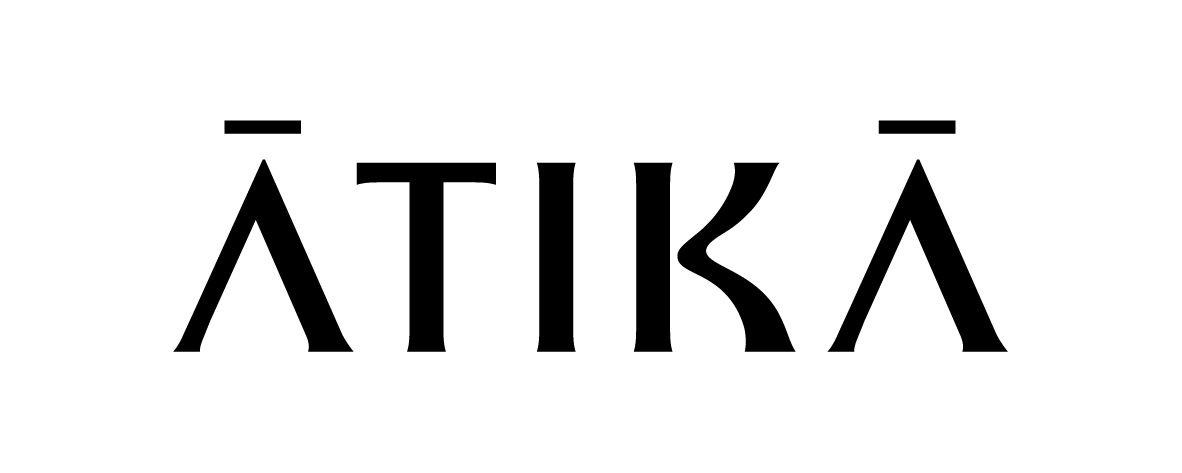
Collagen Cofactors: The Nutrients That Make Collagen Supplements Work Better
The Five Essential Collagen Cofactors
Collagen peptides are foundational for skin structure — but peptides alone don’t rebuild collagen. Your body still needs certain vitamins and minerals to help collagen form, stabilize, protect itself from oxidative stress, and stay energized at the cellular level. Without them, fibroblasts can’t efficiently convert amino acids into mature, functional collagen fibers.
ATIKA Advanced Skin Nutrition (ASN) supports skin longevity, hydration, and collagen integrity through therapeutic doses of collagen peptides, ceramides, and a coordinated blend of antioxidants and cofactors — so it’s far more than a collagen supplement.
Below, we’ll look at five essential micronutrients that help your body use collagen peptides more effectively — and why ASN focuses on these specific cofactors.
1. Vitamin C — the essential enzyme activator
Vitamin C helps your body build usable collagen by activating the enzymes that shape new collagen strands into a strong triple helix. It keeps the iron these enzymes rely on in its active form so they continue working efficiently. Even a mild vitamin C shortfall can slow this step and weaken collagen formation1, 2.
2. Zinc — structural and genetic regulation
Zinc helps the skin’s collagen-building cells grow and function. It also supports antioxidant enzymes that protect new collagen and keeps a healthy balance between making new collagen and remodeling existing tissue3, 4.
3. Selenium — antioxidant defense during matrix assembly
Selenium helps control oxidative stress while your body is building collagen. It supports enzymes that clear peroxide and other reactive by-products, so new collagen strands stay intact — not cut by oxidative stress as they “set”5, 6.
4. Niacinamide (vitamin B₃) — NAD⁺, energy, and repair
Niacinamide replenishes NAD⁺ — a coenzyme essential for ATP production, DNA repair, and sirtuin-mediated cellular defense. Sustaining NAD⁺ levels enhances fibroblast energy metabolism and resilience under oxidative or UV stress 7, 8.
5. Bamboo-derived silica — cross-link formation and elasticity
Bamboo-derived silica provides a bioavailable form of silicon that your body can use to strengthen collagen’s structure. It helps link collagen fibers with other key skin molecules for better firmness and elasticity. Human studies show improvements in skin smoothness and flexibility when silicon is combined with vitamin C9, 10.
Collagen peptides provide the substrate; these cofactors provide the machinery. Formulas that combine both show higher efficiency of collagen turnover and stronger extracellular-matrix integrity compared to collagen alone.
Other Collagen Cofactors — and Why ATIKA Focuses on the Essentials
Other micronutrients such as copper, manganese, magnesium, iron, and certain B-vitamins (B₂, B₅, B₆, and biotin) also act as supporting cofactors in connective-tissue metabolism. These nutrients participate in background enzymatic reactions such as hydroxylation and glycosylation, but in well-nourished adults they are rarely limiting for collagen synthesis. Clinical evidence shows that increasing them beyond dietary adequacy does not further enhance dermal collagen formation or elasticity.
Trace minerals like copper and manganese have narrow safety margins, and excessive supplementation can drive oxidative stress. Likewise, amino acids such as glycine, proline, and lysine are already abundant in VERISOL® collagen peptides, making separate inclusion unnecessary.
ATIKA Advanced Skin Nutrition was designed to supply only the rate-limiting cofactors for collagen synthesis — vitamin C, zinc, selenium, niacinamide, and bamboo-derived silica — each backed by human data for their roles in fibroblast energy metabolism, antioxidant defense, and matrix stability. This keeps the formula targeted, bioavailable, and evidence-based without unnecessary redundancy.
In Summary: The Cofactor Network
Each of these nutrients plays a specific role in collagen synthesis — from formation to stabilization to protection. Working together, they explain how ASN supports skin structure from within.
- Vitamin C — activates the enzymes that form and stabilize new collagen strands1, 2.
- Zinc — supports collagen-building cells and maintains balance between new collagen production and natural remodeling3, 4.
- Selenium — helps protect freshly formed collagen from oxidative stress during synthesis5, 6.
- Niacinamide — maintains NAD⁺ levels so fibroblasts have the energy to repair and build new collagen7, 8.
- Bamboo-derived silica — provides a bioavailable form of silicon that strengthens collagen’s structure and supports elasticity9, 10.


Leave a comment
This site is protected by hCaptcha and the hCaptcha Privacy Policy and Terms of Service apply.